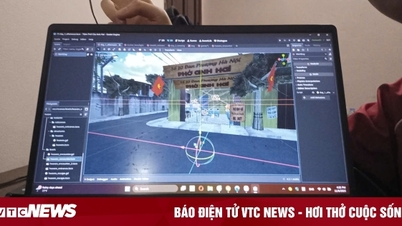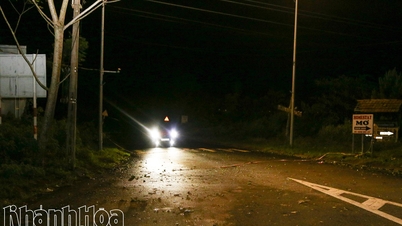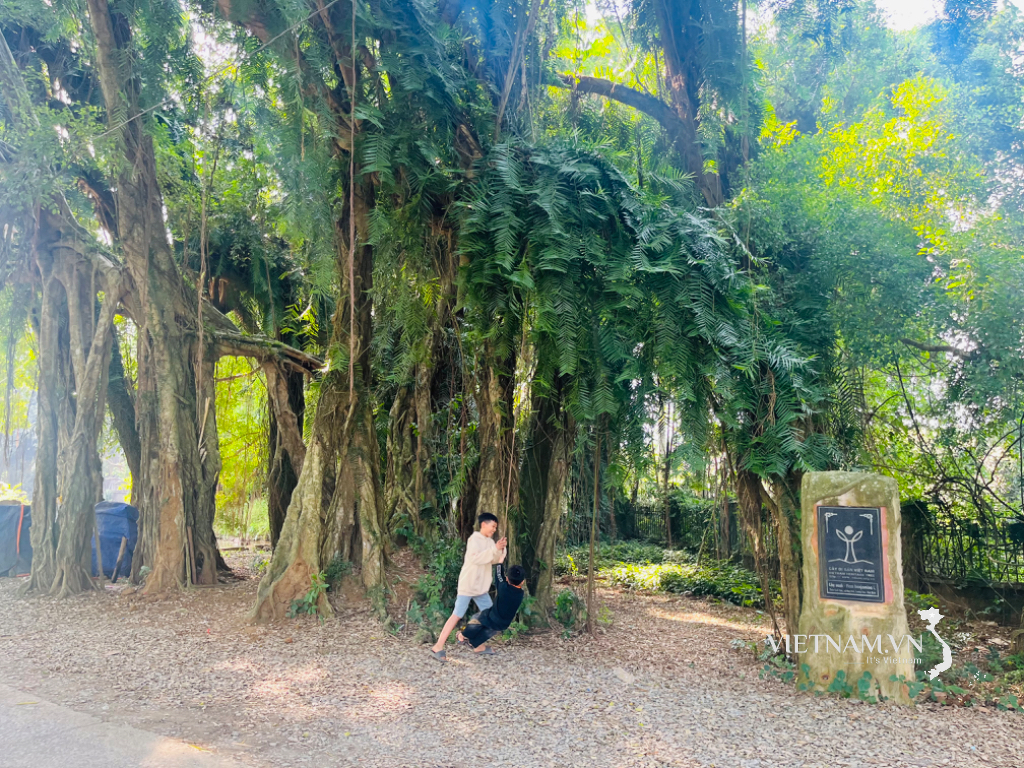Retaking exams and classes is not uncommon for university students, but it is most common in the first year - when many "newbies" have not yet adapted to the new learning methods and lifestyle. Many students are busy "relaxing" after stressful high school years, or are caught up in the temptations of the city.
First year shock - when the 'star' of a specialized school loses his form
A former student majoring in Mathematics at Vinh High School for the Gifted, University of Nghe An , TTA said that during high school he studied 4-5 sessions a day, especially during the university entrance exam preparation period. With 26.1 points, TA was admitted to the Finance - Banking major at the University of Commerce.
Coming from the countryside to Hanoi to study at university, TTA was attracted by the glamorous beauty and vibrant life of the capital. The male student took advantage of all his free time to go out with friends, explore and eat. Many nights, TA came home at 1-2 am, without having time to touch his books.
Away from his family, TTA gradually neglected his studies and continued to have fun until the exam was near. As a result, the male student had to retake two subjects and pay an additional 3.2 million VND in tuition - equivalent to half a month's salary of his mother in the countryside. "That was the first shock since I started university. I realized that freedom comes with responsibility, if I don't know how to control myself, I will have to pay the price," TA shared.

Not only TA, MVQ, a second-year student at Hanoi National University of Education, also had to retake three subjects in his first year. “Many students, including me, fell asleep on their victory in passing the university entrance exam. If only I had tried harder earlier, the dream of a scholarship would have been much easier,” Q. said.
The male student said the main reason was that he had not yet caught up with the new learning methods. Lecturers often teach very quickly, students have to read and understand on their own. There are subjects that cover an entire book in four mornings, if you are not proactive, it is difficult to keep up.
Nguyen Thao My, a final year student at the Academy of Journalism and Communication, has never had to repeat a course but has witnessed many students falling into this situation in their first year.
According to My, many students are falling behind because they are too busy working part-time. “Some students work 2-3 shifts a day, finishing work at midnight, and can’t get up the next morning to go to school. At first, they only miss a few classes, but then it becomes a habit, and they neglect their studies without realizing it,” she said.
My believes that working part-time helps students mature, but if they don’t know how to organize their time, they can easily become exhausted, fall asleep in class, or miss tests. “Many students have to repeat two or three subjects in their first year because they are so busy working part-time,” she said.
The new environment requires critical thinking, self-study and self-reliance.
Associate Professor Dr. Pham Manh Ha, an educational psychology expert at Hanoi University of Science and Technology, commented: “Many students used to be ‘stars’ in high school, but when they entered university, they lost their breath. The underlying cause is the fundamental change in the learning model – from a tightly controlled environment, learning to memorize and reproduce – to an environment that requires critical thinking, self-study and autonomy.”
According to Associate Professor Ha, this shock has left many students disoriented, demotivated, and unable to adapt to the new way of learning. Those who used to study at specialized schools or top schools are also likely to fall into an identity crisis when they can no longer maintain their previous “leading” position.
“Many students attach their self-worth to perfect scores. When they get low scores or fail, they feel they are ‘no longer good’. From there, feelings of inferiority, procrastination, and even avoidance of studying begin to appear as a defense mechanism,” the expert shared.
According to experts, not only good students, many students from rural or provincial areas also face similar difficulties. When leaving their hometowns to go to big cities, they may experience culture shock when changing their living and learning environment, as well as lack communication skills, relationships, or time management experience.
“Many students both study and work to cover expenses, and have high expectations from their families - that they must study well to change their lives. When they encounter difficulties, they are reluctant to share for fear of being judged as weak. This double pressure causes many students to fall into psychological overload, easily become discouraged and decline in their studies,” Associate Professor Ha analyzed.
Three directions of "psychological restructuring" to help students overcome learning crisis
According to Associate Professor Ha, to overcome this "exhaustion" period, students need to restructure their thinking and study habits in three aspects:
First, switch to a growth mindset: See failure or low scores as feedback to help you adjust your approach, not as evidence of weakness. Learning goals should be about progress, not just grades.
Second, practice positive thinking: When you make a mistake, instead of criticizing yourself, treat yourself with compassion and encouragement like you would a friend. Separating your self-worth from your achievements helps reduce stress and maintain a healthy learning spirit.
Third, build self-regulation skills: Don't rely on willpower alone. Make a specific study plan, break down tasks, apply techniques like Pomodoro to increase concentration, and proactively seek support from your instructor or study group.
“Freedom is the most attractive thing in university, but without the ability to self-manage, that freedom will become the biggest challenge,” Dr. Ha emphasized.
According to experts, adapting to the university environment is a long process, requiring students to practice skills, learn to accept mistakes and develop themselves. Academic achievement is only a part, more important is the ability to self-orient and maintain the spirit of learning.
Source: https://vietnamnet.vn/nam-sinh-tung-la-ngoi-sao-truong-chuyen-soc-khi-phai-hoc-lai-2-mon-tu-nam-nhat-2458931.html


![[Photo] Closing of the 14th Conference of the 13th Party Central Committee](https://vphoto.vietnam.vn/thumb/1200x675/vietnam/resource/IMAGE/2025/11/06/1762404919012_a1-bnd-5975-5183-jpg.webp)

![[Photo] Prime Minister Pham Minh Chinh receives the delegation of the Semiconductor Manufacturing International (SEMI)](https://vphoto.vietnam.vn/thumb/1200x675/vietnam/resource/IMAGE/2025/11/06/1762434628831_dsc-0219-jpg.webp)











































































































Comment (0)